Her corner office within the Presidency looked out over the sea; in Uruguay, the top place to be. So, when she received a diagnosis of Parkinson’s, she sat in her office and looked at the sea, asking, “is it now, when everything ends?”.
But in the end, she says, it was not the end.
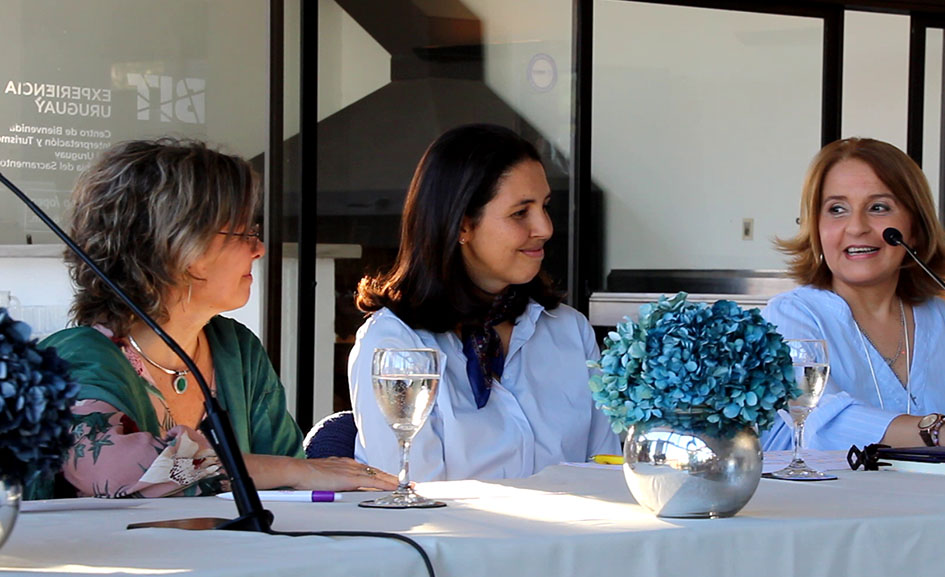
The Pathway to the Rediscovery
Florencia spent the first year after her diagnosis in what she describes as “survival mode”. Believing that this would bring an end to everything she had worked so hard to achieve, her mental health suffered greatly. In Uruguay, there is a strong taboo around these subjects, so Florencia suffered in silence. When she eventually did find the strength to tell friends about her diagnosis, some started to cry and she found she was the one having to console them. Others didn’t know what to say, while some said, “hope for a miracle”, or “perhaps the doctors have made a mistake”. After this, she locked herself away and tried to hide her symptoms.
After a year, Florencia realised that there was no possibility of continuing in the way that she was living. She narrates her story of changing her mindset through a dialogue with a fairy; the fairy waved her magic wand and asked Florencia four questions. “Do you believe that you can have everything under your control? You can’t even control your right hand. Do you think you can achieve perfection? What can be more symbolically unperfect than being disabled. Are you proud of being so intelligent, and of your work capacity? Well, look at your brain scan and see all of those areas in blue that do not work. Do you think you can achieve everything you want? Experience for yourself what it feels like to be vulnerable.”
These were the four characteristics through which Florencia defined herself. Her Parkinson’s diagnosis altered every single one of them, so now she had to reinvent herself. This realisation was the most important lesson that she has ever learnt.
To go through the process of rediscovering who she was, Florencia spent four years writing. She wrote entirely for herself, without a need to consider others, in what she calls “an exorcism of the things I was feeling”. It gave her immense therapeutic satisfaction, and when she began sharing some pages with other people she discovered that they understood her, and how to help her through her process. She found that people identified with her writing, even if they didn’t have Parkinson’s. A powerful example of this comes from one of Florencia’s friends, whose son had taken his life, who credits Florencia with showing her the way to continue, the door to go on. Florencia emphasises that there are many who have told her similar things.
Dealing with Uncertainty
With Parkinson’s, Florencia has realised that you don’t know which symptoms will appear and how the disease will evolve, so learning to deal with the uncertainty has been crucial. She tells us that the first thing to do is identify your fears – and she was not short of these. When she went to a workshop on writing to heal, the teacher asked the group to list all their fears; Florencia wanted to raise her hand like a keen schoolchild and say, “teacher, teacher! I have the longest list!”. Her list included the fear of not being able to teach, of losing her autonomy, of not being able to walk efficiently; of all the visible symptoms that Parkinson’s brings. She was afraid of all of those fears. But she identified the fears.
The second step in dealing with uncertainty is to address one’s perfectionist, controlling tendencies. Discover what you can and what you cannot control, and be confident that for what you can’t control, there is a reason. Maybe you understand this reason or maybe you don’t, but when you are confident of what you can’t control and you leave it over to one side, you focus only on what you can control, and the uncertainty will feel different. Just focus on what you can control; exercise, meditation and improving your emotional wellbeing.
Florencia has learnt to live in the present. She still plans for things, like a summer trip, but she has learnt not to be concerned with longer-term plans. “I can’t do that! I don’t even know where I will be in five years. But what I do know is that now I am here with you, enjoying the day”.
Identify the Problems that can be Solved
One of the things that Florencia realised she was able to control was the difficulty that she was having in finding items in her bag whilst stiff. Some years prior to her diagnosis, her mother had given her a sewing machine as a graduation present. At the time, she had been amused, thinking it wasn’t a particularly common present. Now, she has found it incredibly useful in creating practical solutions to the problems that Parkinson’s creates.
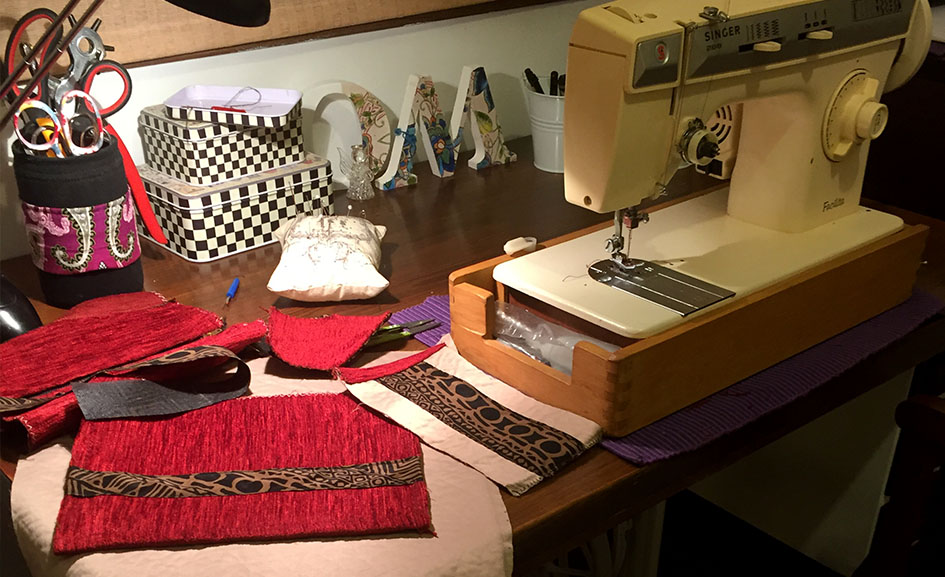
The handbag that she has designed and made herself, all from fabrics she had in her home, is not only practical but is also stylish. Every element has been designed with ease of use in mind: from the strap at the exact length so that the bag doesn’t impinge on her walking ability, but also isn’t so high that she needs to bend her arm; to the secure side pocket for storing her phone. The personalised size was decided based on all the items she knew she would need to carry, and the zips and locks were selected specifically as the easiest ones to use whilst experiencing strong symptoms. One ribbon with an easily detachable loop holds car keys, and a longer one holds the keys that can be used whilst still connected to the bag; preventing any risk of them falling and you having to struggle to pick them up. Inside, the two pockets have different coloured zips, to make remembering which pocket you put something in much easier. An extra pocket was added outside so that everything the cashier at the supermarket hands you can be quickly chucked in: coins, coupons, your cards and receipt. Florencia knows from experience how stressful it can be when everyone waiting behind you in the queue is hurrying you, but the more stressed you are, the stiffer you become.
The thought that went into each detail is incredible, and we weren’t surprised to learn that the bag took Florencia a year to make. She sewed it when her symptoms were at their worst, so she had to set herself a limit of only spending half an hour attempting to thread a needle before asking her husband to help her.
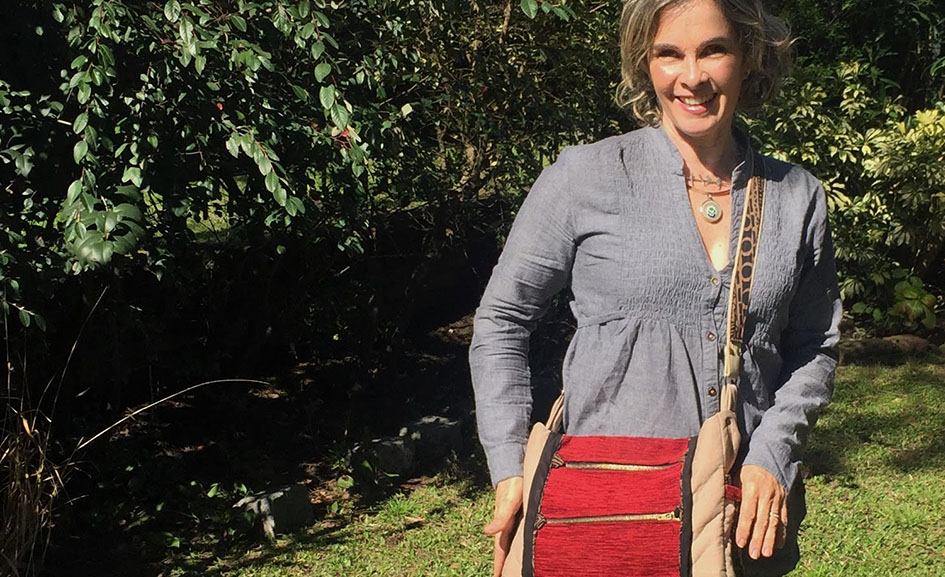
Although she could have made the bag in an easier way, with less features, she enjoys looking for a challenge. Apart from the locking systems, everything in the bag came from fabric and materials that she already had; including a belt that she used to make the strap. “I enjoy using things and objects that have been categorised as useless. Because it recreates what I did with myself, to reinvent myself. From something or somebody that appears to be useless, you can create a better version, or give a new opportunity and a new sense to be”.
What is the Meaning of Parkinson’s in My Life?
After reinventing herself, Florencia has found purpose in helping others to go through similar processes, helping them to speak naturally about the disease, so that it isn’t as difficult for them as it was for her. She has combined her writings from the past four years into a book and has since met up with the people who had left her alone in those years; now, she is beginning to understand that respect for the privacy of another can be confounded for a lack of desire to speak about taboo subjects. Feeling more at peace with the past, she has continued to be surprised by people’s strong reactions to her book.
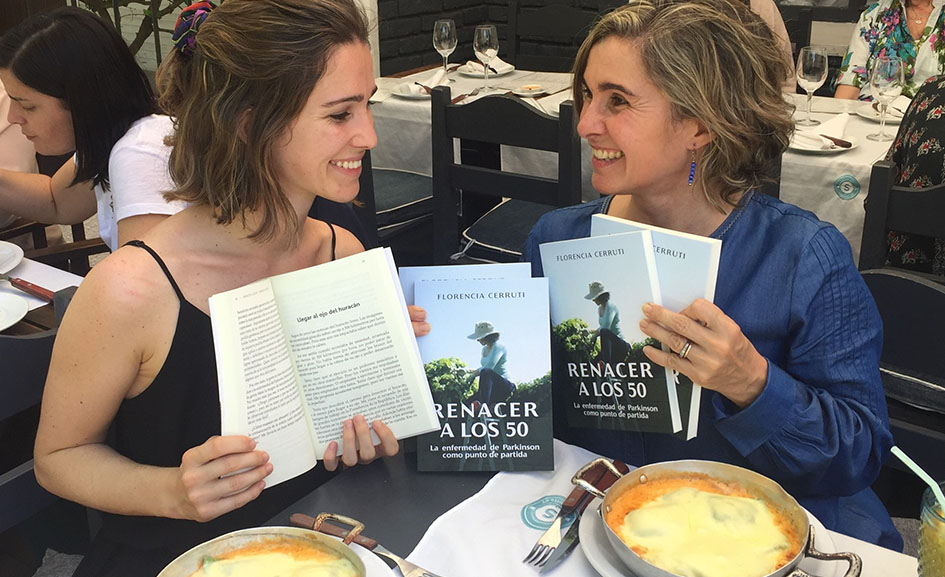
One of the people who strongly identified with Florencia’s struggles was Marie Perry. An American living in Mexico, Marie’s journey since being diagnosed with Parkinson’s 13 years ago has been long and difficult. She sought a diagnosis after a student in her class asked her why she was shaking. Then, a friend whom she confided in told her that they had noticed her tremor a year before but had been too ashamed to speak with her about it. Marie hopes that one day, people will begin to speak more openly about Parkinson’s in Latin America. She embarked on her own path in seeking out ways to make life easier for those with Parkinson’s and stumbled across an interview with Florencia on Youtube. Finding she agreed with everything that Florencia was saying, she reached out to her and then went to hear her speak when she was in Mexico, and they kept in touch for a while. Marie felt such a strong connection with Florencia’s book that one night she contemplated asking if she could translate it into English, to share it with a wider audience. Just as she was thinking about it, Florencia called Marie and asked her to do just that. Taking advantage of the time and energy they have had in lockdown, they worked together to translate Florencia’s book from Spanish to English.
Both Florencia and Marie are keen to share their experiences to help others. Florencia believes that when diagnosed with Parkinson’s, you need to find the answer to the question, not “Why me?”, but “What for? What is the meaning of this disease in my life?”. For her, she has found the meaning in trying to help others, in putting into words what others cannot.
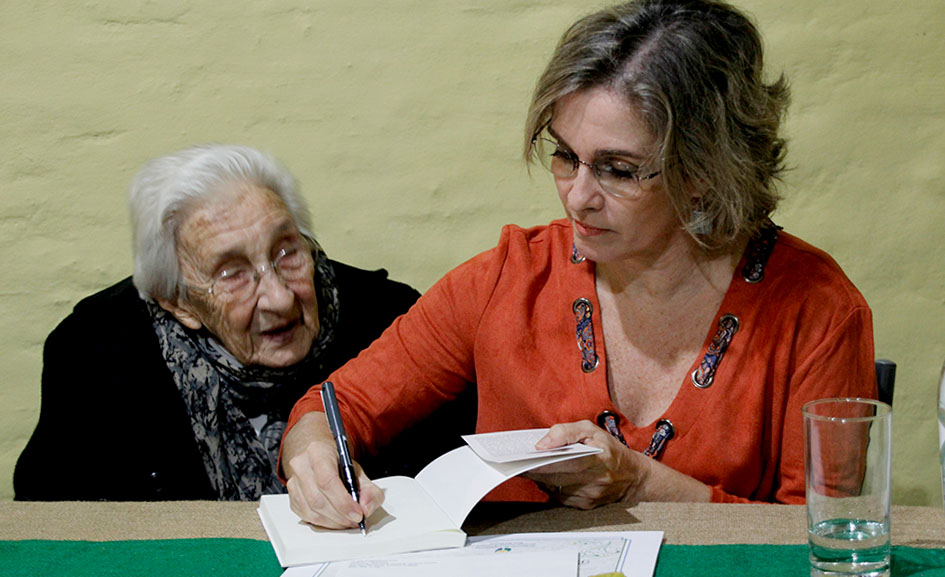
At Charco Neurotech, we also want to share people’s experiences and help others to find the stories that they identify with. We are so grateful to Florencia and to Marie, whose translation of Renacer a los 50 has just been finished and is now available to purchase as Rebirth at 50: In the end, it was not The End